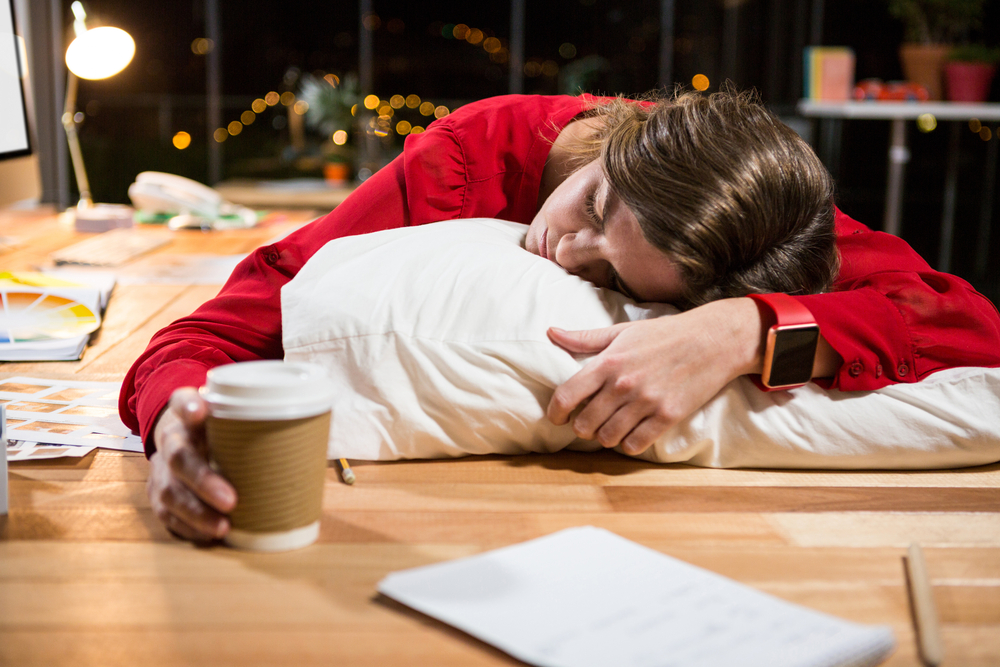
Depression and sleep problems often go hand in hand. If you’re thinking about pursuing Ketamine Infusion Therapy as a treatment for your depression, you may be concerned about the effects it may have on your sleep patterns. Learn more about what to expect after a ketamine infusion and how to prioritize healthy sleeping habits during and after your treatment.
The Link Between Depression and Sleep
Sleep and depression are very closely linked. In fact, about 65% to 90% of adults with major depression experience sleep problems including insomnia, restlessness, excessive fatigue or sleeping more than usual.
Depressed patients who struggle with sleep problems like insomnia are less likely to respond to treatment or have a relapse of depression later on. Sadly, sleep problems can also increase the likelihood that someone with depression will have thoughts of suicide or die by suicide compared to people with more stable sleeping patterns.
To make matters worse, one of the most common depression treatments—antidepressants—may cause insomnia and other negative side-effects like fatigue, drowsiness, nausea, increased appetite, and weight gain. As a result, people who struggle with sleep issues when they are depressed may need to look at other treatment options, such as talk therapy or Ketamine Infusion Therapy.
In short, poor sleep can have detrimental effects and may even pose a life-threatening risk for someone battling with depression. For those who struggle with sleep while trying to manage their depressive symptoms, it’s important to find a treatment that offers fast relief without further disrupting already imbalanced sleeping patterns.
How to Address Sleep Problems
Ketamine Infusion Therapy is a great option for treating depression with a lower risk of negatively impacting sleep. Unlike antidepressants, infusions only cause temporary fatigue and can often help to regulate sleep patterns in patients experiencing sleep dysregulation. If you’re eager to replenish your energy levels and start feeling like yourself again, Ketamine Infusion Therapy may offer the fastest relief available.
Despite ketamine’s benefits, it is still important to understand and prioritize healthy sleep habits during and after your treatment, especially since poor sleep is so closely linked to depressive symptoms. Here are some steps you can take to help address sleep issues while being treated for depression with Ketamine Infusion Therapy:
- Stick to a schedule: Going to bed at the same time every night, even on the weekends, often results in better sleep. Waking up around the same time every morning also helps to regulate sleep patterns. A set schedule can make it easier to fall asleep at night, allows more sound sleep throughout the night, and can help you feel more energized in the mornings.
- Make your evenings peaceful: Try to focus on calm, quiet activities in the hour or two before you go to bed. Avoid stressful tasks and instead unwind with a good book, a warm bath, meditation, or other soothing activity. Try to cut out screen time before bed, as most modern electronics emit a blue light which can suppress melatonin production and make it harder to fall and stay asleep.
- Create a cozy bedroom: Remove anything from your bedroom that may decrease the quality of your sleep. Hang blackout curtains over your windows and use soft lighting in the evenings to help you wind down. Find a mattress or bedding that’s comfortable and won’t make you feel overheated. A white noise machine can help cover up sounds that might otherwise wake you up.
- Get active: Exercising daily helps to reduce stress and causes the body to release natural endorphins that improve mood. It can also improve sleep as long as you don’t exercise too close to bedtime. If possible, try to exercise outside or go for a walk each day. Sunlight includes mood-boosting vitamin D that can also help maintain your natural circadian rhythm for better sleep.
What to Expect After Ketamine Infusion Therapy
Fortunately, Ketamine Infusion Therapy is not linked to any sleep issues. It’s common to feel temporarily tired or groggy after receiving a ketamine infusion. There may be slight dissociative effects as well, but they typically only last 20 to 30 minutes after the infusion is complete. Some people feel mild nausea after their infusion, but anti-nausea medication can be administered to help prevent this side-effect.
Patients should have someone available to bring them home after their appointment since they should not do any of the following until they’ve had a full night’s rest:
- Drive a car
- Operate heavy or dangerous machinery
- Sign contracts or binding agreements
- Participate in any potentially risky activities
While you may feel a little tired after your appointment, any drowsiness should subside by the following morning.
One of the most remarkable aspects of Ketamine Infusion Therapy is that it often provides noticeable improvements very quickly. In fact, some people report feeling better within just one hour of their first infusion. Compared to most other types of depression treatments, Ketamine Infusion Therapy helps patients feel better much sooner, without the unwanted side-effects or physical dependency.
If you’ve struggled with sleep while feeling depressed, you may begin to experience more normal sleep patterns quite quickly through Ketamine Infusion Therapy. In fact, Ketamine has been linked to improved sleep rhythms which may help to sustain its antidepressant effects.
Ketamine Infusion Therapy offers a quick and effective way to deal with depression without worsening your sleep problems, and can even help you start sleeping better within a matter of days. To learn more about Ketamine Infusion Therapy, schedule a free consultation by contacting us at Ketamine Clinics Los Angeles.

